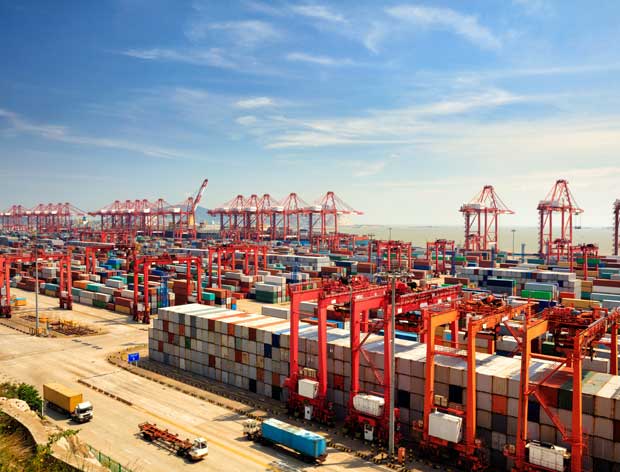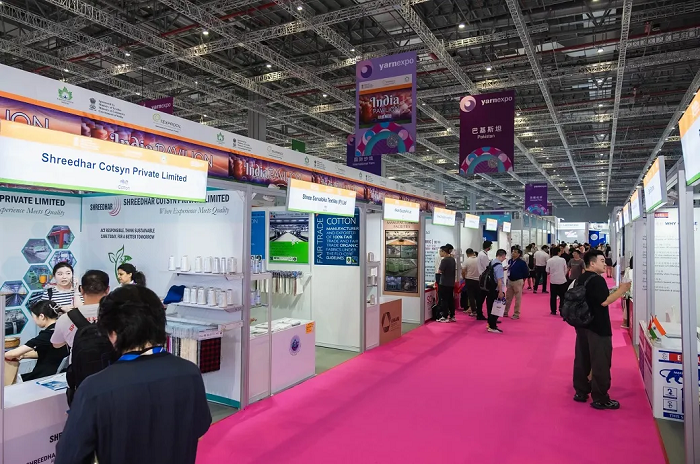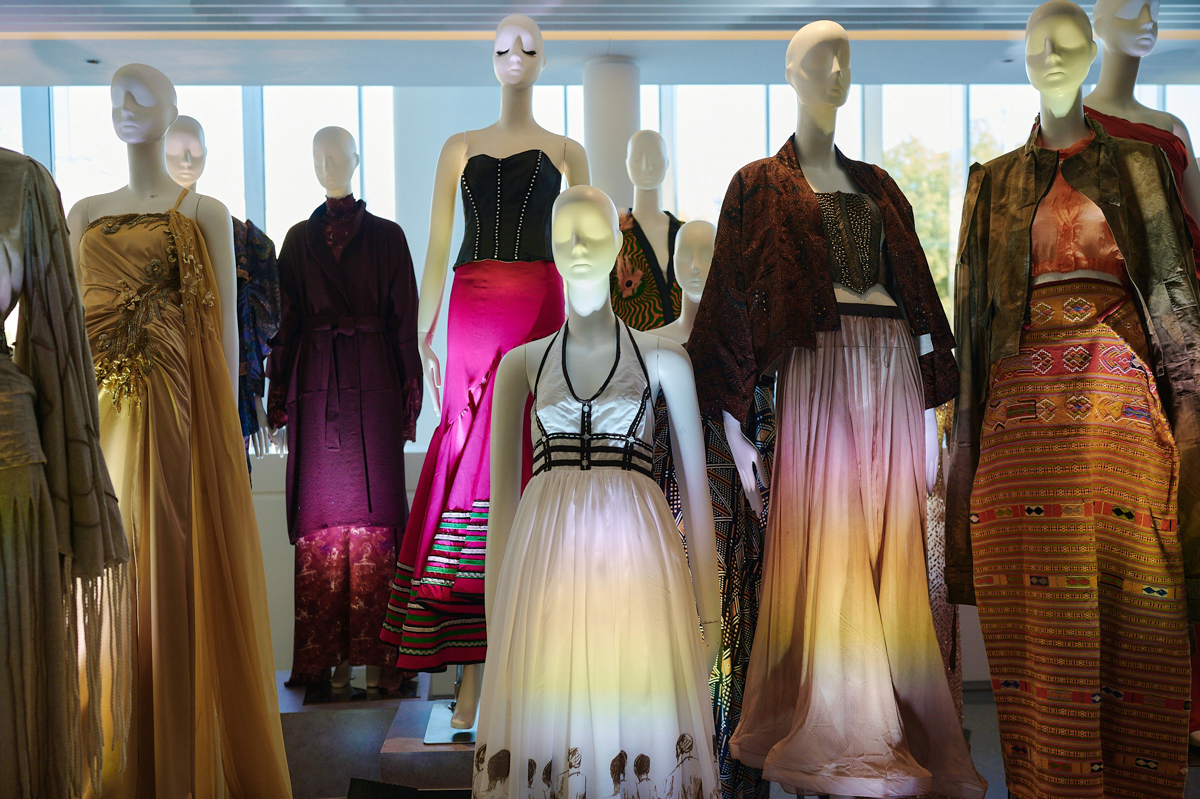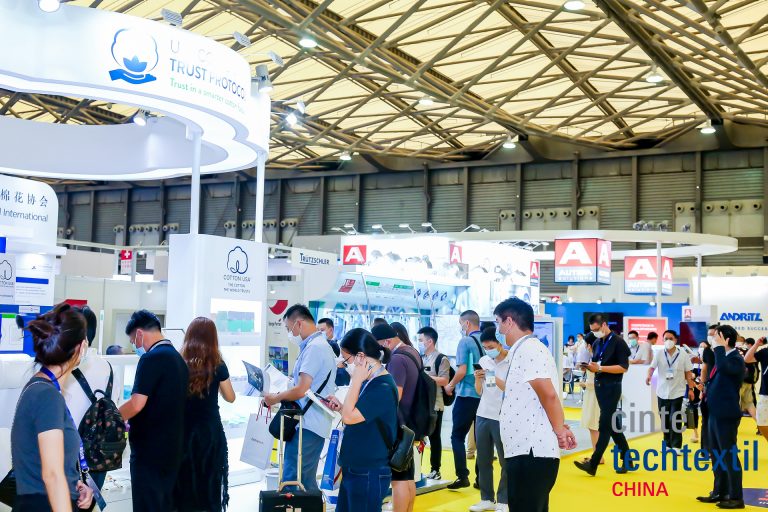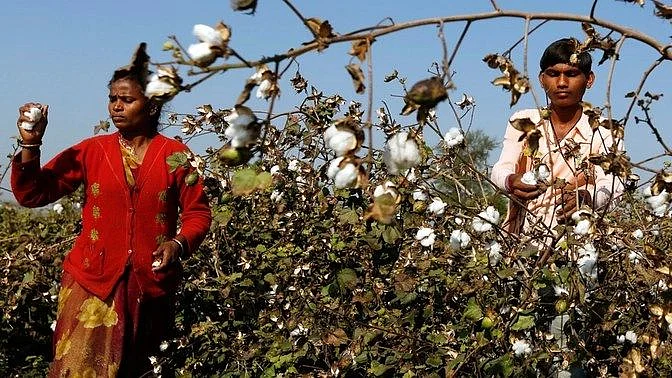IndustriALL Global Union records 60 global brands have already signed up to renew their commitment to bearing the costs of health and safety checks, including Adidas, Lidl and Primark. However, some top UK fashion and clothes retailers have not yet signed the deal to renew their commitment to factory safety in Bangladesh. John Lewis, M&S, Next, Debenhams and Sainsbury’s are yet to add their names to the list of brands committing themselves to Bangladesh’s latest laws on fire and building safety. The renewed agreement will see greater investment in health and safety checks come into effect this year as the original 2013 agreement is due to expire in May. A legally binding agreement was set up in 2013 where brands must share responsibility for the costs of improving health and safety in Bangladeshi factories. Bangladesh’s Accord on Fire and Building Safety was introduced after the devastating Rana Plaza factory fire which killed 1,135 workers and left over 2,500 people injured.
A spokesperson from John Lewis said the company is currently reviewing details of the new agreement before making a final decision ahead of the deadline. M&S reportedly said it is still “in discussion with stakeholders on Accord 2.0”, while Debenhams said it had “meetings in the diary” before May. A Next spokesperson said “If Next decides not to sign Accord 2 – it is confident that it already has a competent, directly employed code of practice team (and office) in place in Bangladesh, to manage safety in that region.” Sainsbury’s said it was actively involved in discussions and said it "applauded the progress that's been made by the Accord in Bangladesh.
Trade unions representing Bangladeshi textile workers reached a $2.3m (£1.6m) settlement earlier in January with an unnamed multinational fashion brand accused of delaying fixes to life-threatening hazards in factories. The UNI Global Union and IndustriALL Global Union took two leading fashion brands to court in 2016 following the introduction of Bangladesh’s Accord on Fire and Building Safety in 2013.
Lakshmi Machine Works’ revenue de-grew by 6.8 per cent yoy to Rs 542cr. EBITDA was Rs65 cr, down by 4.8 per cent yoy. EBITDA margin grew by 25 bps yoy to 11.95 per cent. Adjusted PAT grew by 4.7 per cent yoy to Rs 57 cr. Depreciation and amortization expenses de-grew by 9.6 per cent yoy to Rs 14.16 cr.
Revenue from textile machinery and machinery tool foundry segment contributed Rs 391.08 cr (down 23.1 per cent yoy) and Rs 98.80cr (up 44.9 per cent yoy) respectively.
Lakshmi Machine Works’ is India's largest textile machinery and CNC Machine Tool manufacturers, based in Coimbatore founded by Cavalier G K Devarajulu. It started operations in 1962 in Coimbatore with technical collaboration with Swiss-based textile machinery manufacturer Rieter for textile machines and German based Steel and Ammunition major Krupp. In mid 1980s the company bought over its Coimbatore based longtime rival and much older Textile and engineering giant Textool. The company is promoted and owned by the Lakshmi Mills family. LMW has 60 per cent market share in domestic textile spinning machinery industry.LMW diversified into CNC Machine Tools and is a brand leader in manufacturing customized products.
Trident’s revenue or Q3FY18, grew by 0.3 per cent yoy to Rs 1,137cr. EBITDA came in at Rs 200cr, down by 11.2 per cent yoy. EBITDA margin contracted 227 bps yoy to 17.59 per cent. Adjusted PAT de-grew by 7.1 per cent yoy to Rs 73cr. The Board has declared 2nd interim dividend of Rs 0.6 per fully paid up equity share of Rs10 each. Record date is February 6, 2018. Finance cost de-grew by 16.3 per cent yoy to Rs 25.2cr. Depreciation and amortisation expenses de-grew by 2.1 per cent yoy to Rs 101.3cr. Employee benefit expenses de-grew by 24.9 per cent yoy to Rs 108.3cr due to rationalisation of manpower cost including structuring of salary and manpower.
Revenue from textile and paper and chemicals segment contributed Rs 913.23cr (up 0.2 per cent yoy) and Rs 224.06cr (up 0.7 per cent yoy) respectively.
Trident Limited (Trident) is the flagship company of TridentGroup, a $1 billion Indian business conglomerate. The group operates in five business segments: Yarn, Bed Linen, Paper, Chemicals and Captive Power. Trident Limited, the flagship company of the group has its customer base in more than 100 countries across six continents. Trident is one of the largest yarn spinners in India, one of the world's largest terry towel manufacturers and the world's largest wheat straw based paper manufacturer.
Zara has officially opened its first click-and- collect concept store in Londons Westfield shopping centre. The Inditex-owned retail giant has launched a purpose-built space to accommodate shoppers while its flagship store, which is also located on the east London site, is being refurbished to double in size. The concept store will be open until May, when the brands newer, bigger flagship opens once again. The new location is spread in around 2,152 sq. ft, has a dedicated space to collect online purchases, while also stocking a selection of pieces from both menswear and women’s wear.
Customers will be given the choice of receiving their items the same day if ordered before 2 pm. The concept store will also incorporate high-tech features. Sales assistants will hold mobile devices to help customers with sizes, stock and collections and you can pay by card, via Bluetooth, at the register.
One can choose to avoid lines by paying through an app where the Zara and Inditex Group apps both permit this, plus InWallet. There's also a self-service checkout. A virtual styling tool is also on hand in-store. Information screens will be embedded into mirrors, with customers permitted to scan barcodes of items using sci-fi- sounding radio frequency identification technology. Once the item is recognised, the internal system brings up multiple choices for coordinating and combining the piece with other garments and accessories."
This futuristic shopping experience comes as part of Indites game plan to slow down its growth in physical retail and instead focus its efforts on omni- channels. Chairman and CEO of Inditex, Pablo Isla said in a brand statement that this marks “another milestone in our strategy of integrating our stores with the online world which represents an important part of our identity.”
Bangladesh government has extended by one year the tenure of current Board of Directors of the Bangladesh Garment Manufacturers and Exporters Association (BGMEA).BGMEA Vice-President Mohammed Nasir confirmed the extension. As per the schedule, BGMEA election board on December 18 last year, the biennial election for the posts of its 35 directors was supposed to be held on March 7.The two panels of apparel makers – Sommilito Parishad and Forum – had reached a consensus to hold election for the new leadership.
Post a meeting with stakeholders and former BGMEA presidents last week, the government decided to extend the board’s term by a year considering the present condition of the apparel industry and challenges they faced, including completion of safety inspection and other issues, Nasir said.A Commerce Ministry official said BGMEA wrote to the government requesting an extension and changes in the memorandum of the association in line with the latest amendment of Trade Organisations Rules.The board had been given a six month extension, however, that expired on September 21 last year.
The Woolmark Company and leading sports brand Adidas have teamed up to launch a design competition focusing on the development of innovative, forward-thinking products for the performance industry. The Woolmark Performance Challenge is a new annual competition for tertiary students in Europe and North America and is set to kick-start the career of the eventual winner.
The joint partners note the competition provides an amazing opportunity for tertiary students to develop innovative new product applications within the sports and performance market, using the science and performance benefits of Australian merino wool. Performance apparel is one of the fastest growing sectors in the international textile industry, growth that can be attributed to an emergence of new technologies, new sporting trends and a shift in people’s attitude towards health and fitness.
In addition, consumers are becoming more aware of the impact their purchasing decisions have on the planet and are demanding natural alternatives for their product and apparel needs. Adidas’ Senior Design Director Tillmann Studrucker explains, “At Adidas we are driven by a constant desire for innovation and its belief that anybody can and should be a creator. This unique collaboration with The Woolmark Company gives young creative students the chance to help shape the future of sport and sports culture. I am looking forward to a lot of creative designs that are considering sustainability with material innovation ideas that blend performance and style, past and future.”
Woolmark says its piece, “Taking advantage of the explosive growth in demand for sportswear and activewear, wool’s position as a technical fibre allows it to meet increasingly demanding consumer needs for comfort and performance. Wool is recognised by leading sportswear brands and manufacturers for its technical benefits including resistance to odour, superb breathability and moisture management capabilities.”
Applied DNA Sciences has announced it is collaborating with Cotton USA, a trademark of Cotton Council International (CCI), to display cotton traceability technology and What's New in Cotton — as part of the Cotton Cares collection at international fashion events this year. The Cotton Cares Collection is designed to introduce designers, established labels and the apparel industry to the process by which a brand can build a certified and traceable collection, that will provide answers to questions about purity, authenticity and ethical standards.
Applied's Traceability along with Signature T technology provides cotton traceability from the farm to the supply chain, through to store shelves. Forensic level origination is also tracked based on blockchain-enabled systems developed to verify SigNature T tagged fibre, yarn, fabric and finished goods. James A Hayward, President and CEO of Applied DNA Sciences says, "Being able to demonstrate that this tag, test and track technology is easily incorporated into the apparel manufacturing process is a good
first step to engaging product designers. The SigNature T molecular tag is safe and binds to cotton fibre in the first processing stage, at the gin. In the US, SigNature T has been used to tag over 150 million lbs. of U.S grown cotton since 2014 and is an easy solution to adapt resulting in 100 per cent product authenticity - a trait being demanded by more consumers around the globe. Brands and manufacturers now have a means to know exactly where their cotton comes from at any stage of the supply chain through SigNature T tagging, testing and tracking, he added.
With just a few days to go for the Union Budget-2018, the Federation of Surat Textile Traders Association (FOSTTA) has sought extension of the e-way bill's implementation in the textile industry by six months and simplification GST as well as a range of other demands submitted to Union finance minister Arun Jaitley. FOSTTA says, the Surat's man-made fabric (MMF) sector was manufacturing 4 crore metre of fabric per day, which has been reduced to 1.7 crore metre post GST. The daily turnover of 65,000 textile traders, which was estimated to Rs 110 crore per day, has been reduced to just Rs 45 crore post GST.
Textile traders urged the finance minister to form a special committee on MMF textile sector to study the impact of GST and suggest long-term solutions. The traders demanded that central government set up a garment manufacturing hub in the city to help textile traders directly supply their fabrics to manufacturing units.
The central government should increase loan amount from Mudra Bank from Rs 10 lakh to Rs 25 lakh to support the 'Make In India' campaign and permit small traders to avail of benefits. Textile traders are facing numerous issues in submitting KYC details to the banks under the new law of the Reserve Bank of India. A majority of textile traders, including small traders, do not have permanent houses in the city and are unable to submit their personal details.
Century Textiles & Industries (CTIL) reported strong net sales as it grew strongly by 17.6 per cent yoy to Rs2,069.5cr (net of excise duty for the base quarter). EBITDA reported 39.8 per cent yoy rise to Rs333.8cr. Led by cost saving in raw material, employee and other expenses, as a per cent of net sales, EBITDA margin expanded by 257bps yoy to 16.1 per cent. Further, with lower interest cost coupled with margin expansion, post adjusting for losses of discontinued operations (PAT) spiralled up significantly to Rs89.9cr as against Rs17.2cr in Q3FY17.
The textile segment reported 5.1 per cent yoy growth in revenue at Rs385.2cr with EBIT margin of 11.2 per cent (65bps yoy contraction). The quarterly numbers were healthy post subdued performance of H1FY18. During the quarter, the company entered into an agreement with Grasim Industries granting it the right to manage and operate the company's viscous filament yarn business for 15 years, commencing February, 2018 on a mutually agreed date.
Grasim will be paying Rs 600 cr upfront royalty along with a Rs200cr refundable security deposit (repayable after 15 years). Additionally, CTIL incorporated a wholly owned subsidiary, Birla Estates, to focus on the real estate business.
Post repeated calls from various industry groups, the government announced the enhancement of duty drawback rates to be effective from January 25, 2018. The enhancement of rates for 102 tariff items will definitely bring relief to all stakeholders. On the flip side, representatives from the textile industry have noted their "disappointment" with the government for ignoring the calls of an industry which has been "one of the most impacted by GST".
Confederation of Indian Textile Industry (CITI), president, Sanjay K Jain is unhappy with the notification, "The notification just mentions wool items which is a very insignificant part of the textile industry. There is nothing on textiles. The textile industry is pretty disappointed that demands for increasing drawback or RoSL for yarn fabric and garments was not considered, despite the industry being in a very difficult position post-GST."
The local textile industry is seeing the country increasingly getting flooded by imported material which is a serious concern for the SMEs operating in this sector. The national president of the Textile Association, Arvind Sinha decries, "Export incentives have come down and at the same time import barriers have gone down which has resulted in imports going up by 20 per cent already, and in some cases like in Bangladesh garments have increased by 50 per cent. Exports are coming down every month."
A decline of 3 per cent in CAGR in textiles and apparels in the month of December last year as against the corresponding period in 2016 has been reported. Exports came to $2996 million during December 2017 when compared to $3075 million in December 2016. Jain echoed the concerns of the industry, "The effective GST duty on fabric is 5 per cent officially, but because of the non-refund of excess input tax credit under inverted duty structure, it actually adds up to 8-9 per cent.
This is making us lose to imports because they only pay 5 per cent IGST." Sinha also shares the same view, "We need genuine duty exemption in exports because money is getting stuck for manufacturers."
- 1
- 2
- 3
- 4
- 5
- 6
- 7
- 8
- 9
- 10
Global supply chains scramble in 2025 as US tariffs drive frontloading and sourc…
Year 2025 has seen the global textile and apparel industry facing unprecedented volatility, largely because of the unpredictable US tariff... Read more
Yarn Expo Autumn 2025 to be the ‘Most Comprehensive Edition Yet’
Asia’s premier platform for the yarn and fiber industry, Yarn Expo Autumn will commence on September 2, 2025, at the... Read more
'The BRICS+ Fashion Summit & MSF: A New Era for Global Fashion
The global economic landscape is undergoing a dramatic shift, with the BRICS+ bloc leading the charge. With combined purchasing power... Read more
Made in America? Tariffs fail to spark a comeback in US apparel
The American fashion industry finds itself at a crossroads. What began as an attempt to ‘reshore’ production through punitive tariffs... Read more
Cinte Techtextil China: Connecting Global Markets with Leading Innovations
Cinte Techtextil China is set to be a dynamic industry event in Shanghai, poised to bridge the gap between Asian... Read more
Cotton at a Crossroads: Geopolitics, trade shifts, and the global balancing act
The global cotton market in 2025 is passing through a period of shifting trade relationships, geopolitical tensions, and the rising... Read more
German textile and fashion industry grapples with persistent economic headwinds
The German textile and fashion industry continues to pass through a challenging economic situation. An anticipated recovery remains elusive amidst... Read more
French consumers blinded by fast fashion's allure: Study
A recent study on French consumer habits in the fashion industry throws up a concerning picture, suggesting that the allure... Read more
The great retail shift in the US, private labels emerge as new brand leaders
Once a humble alternative for budget-conscious shoppers, private labels often called store brands have stealthily evolved into a commanding force... Read more
Indian textile sector braces for increased Chinese imports amid diplomatic thaw
Following high-level diplomatic engagements between Indian External Affairs Minister S. Jaishankar and Chinese Foreign Minister Wang Yi, a new chapter... Read more

